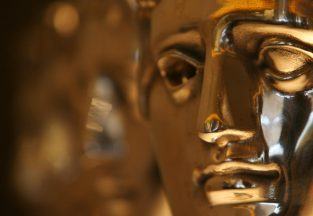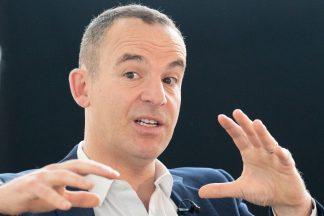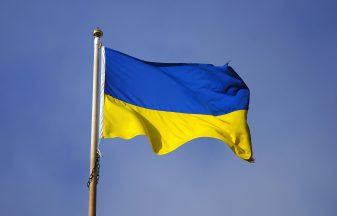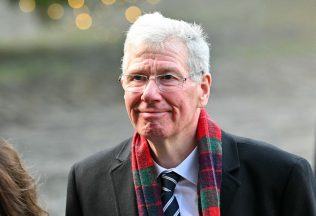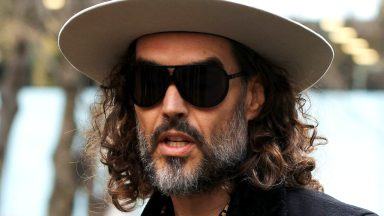Nicola Sturgeon can look back on a remarkable career as Scotland’s first woman First Minister and indeed the longest serving to hold the office. She turned the SNP into an electoral juggernaut, a mass-membership party and brought an admired competence to her office.
Her perfectly pitched messaging during the Covid pandemic was impressive and all the more so as the personal pressures of dealing with large-scale deaths must have been immense. The strain of leadership was obvious at times, but so too was her undeniable skill in nursing a nation through lockdown.
And by commanding the landscape for so long, she can be genuinely said to be an inspiration for young women, especially young working-class women about life’s possibilities. That, of itself, is no mean achievement.
On the negative side of the ledger, her record on bread-and-butter issues is frankly not good.
NHS waiting times grew. So, too, the attainment gap in education. Drugs-related deaths remain stubbornly high. The ferries fiasco was a misjudgement by ministers that cost the taxpayer tens of millions. The country was not radically transformed by her slavishness to managerialism.
For someone who believed in radical politics, she was curiously conservative in her approach to change and aloof in the business of collective leadership.
There were constant grumblings about the way she managed the party and the government, and if an avalanche of off-the-record briefings are to be believed, she was positively Blairite in her contempt for collective decision making.
Her electoral wins anointed a certain star status with activists, but perturbed others internally who spied a certain personality cult around her and her leadership.
Her very public falling out with her mentor and predecessor Alex Salmond, over allegations about his behaviour, was another low point. She confessed to be shocked at the scale and seriousness of allegations and looked at times genuinely wounded on a personal level.
Her critics, however, thought her reaction utterly faux and detected by this time a leader who was utterly ruthless in the business of keeping trouble away from her door.
Historically, the SNP has been a party that crackles with debate. Dissent has been seen as honourable and a consequence of genuinely held disagreements over the way forward.
And yet, in the post-2014 environment, this once hot house of discussion became a disciplined force that seem to frown at the notion of rocking the boat.
Others, less charitable to the SNP, would describe it as a one-woman show where bending the knee to the leader became a culture that replaced serious politics.
By the time of the fallout with Salmond, there were already charges that, strategically speaking, she had no plan for delivering independence. That frustrated many and when she cut Salmond adrift, some quit the SNP and began to see Sturgeon as a barrier to change.
It is only accurate to record that the mainstream SNP view remained squarely behind her, most preparing to trust her judgement.
She was undoubtedly the ‘big beast’ of Scottish politics and her presentational and debating skills were used to good effect in the parliamentary chamber, where she was able to argue her way out of circumstances which were pretty damning of her administration.
And so, week after week, opposition leaders would hound her with the latest ills to befall our public services or the country more generally.
More often than not, Sturgeon could deflect or turn the tables in repeated shows of debating bravado, even if the reality of a situation pointed to the culpability of her government.
Her journey from activist to candidate to MSP to minister and then First Minister was one defined by a single-minded determination to succeed with a keen eye for clever positioning.
By the time of Salmond’s resignation after the defeat in the 2014 referendum, she was effectively the candidate that no-one could beat.
As a young woman she was reserved, perhaps even shy and she found the gregariousness that politics often demands to be a strain. Along the way, she learned to lighten up a bit, especially at photo calls, but you sensed she didn’t enjoy them.
The ‘nippy sweetie’ jibe that was often delivered by opponents was done with sexist overtones. She very quickly established an authority that made opponents wary of trying to make that charge too often.
For the record, she was no more nippy than a lot of senior politicians over the years, and she probably had good reason to be spiky, given that when she started out, politics was still overwhelmingly a man’s world.
With journalists, she wasn’t one for small talk, far less indulging the gossip of the political village, and if she had a sense of humour, it was not evident to this correspondent who has observed her for over 30 years.
It is also difficult to pin on her a defining achievement, the kind of issue that endows a legacy.
Take previous First Ministers.
Donald Dewar gave us the parliament. Henry McLeish free personal care, and Jack McConnell the smoking ban.
Alex Salmond took the SNP from protest to power in the process busting the electoral system, and was within ten percentage points of delivering independence.
Sturgeon learned all the tricks of the political trade from presentation to apparatchik manoeuvring, and yet it is difficult to name one thing with which her name will be forever associated in policy terms.
She has played the game of politics superbly, but to what end?
In delivering social-democratic ends, Scotland stalled if not regressed on her watch. And on the central SNP aim of delivering independence, she could not deliver it.
Although there has been a failure to deliver another referendum, in one sense it was always a stab at the near impossible.
The crude constitutional reality is that Westminster remains sovereign and maintains an effective veto over another vote.
There was little that she could do to force the hand of the UK Government, which had turned several blind eyes to successive SNP electoral triumphs.
Her departure from the frontline robs her party of a formidable communicator. What comes next or more precisely, who comes next?
Whoever they are, they are unlikely to possess her political nous.
These are difficult times for the independence movement. And for the SNP, perhaps more difficult still.
One thing will become clear in the months and years ahead. She will be an impossible act to follow in the business of conveying a sense of stability and competence, even if an objective eye reveals that she has presided over a deterioration in much of our public services.
Follow STV News on WhatsApp
Scan the QR code on your mobile device for all the latest news from around the country








